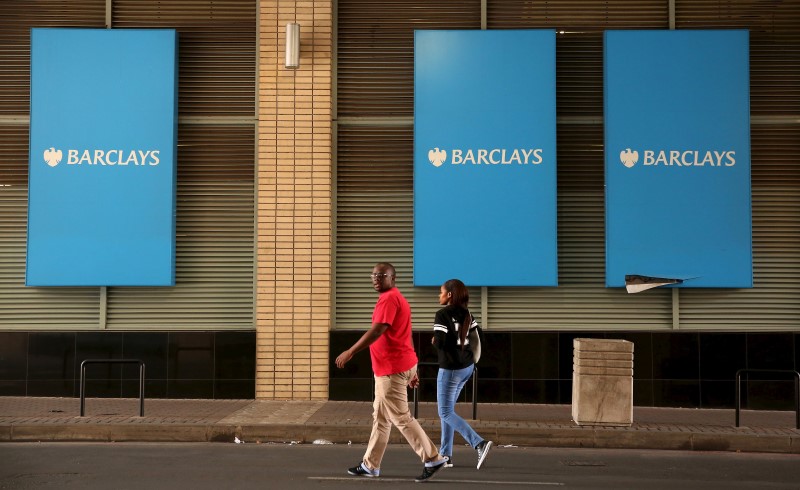Intel stock extends gains after report of possible U.S. government stake
Investing.com - Peak uncertainty around U.S. President Donald Trump’s tariff agenda has likely passed, Barclays (LON:BARC) has argued, as the bank became the latest on Wall Street to raise its year-end target for the benchmark S&P 500 index.
Analysts at the brokerage said the average is now tipped to finish 2025 at 6,050, up from its previous estimate of 5,900. The S&P ended on Tuesday at 5,970.37.
Barclays joins a list of lenders who have boosted their expectations for the S&P in recent days, including the likes of Goldman Sachs, Deutsche Bank (ETR:DBKGn), and UBS Global Wealth Management.
Writing in a note to clients, the Barclays strategists said hopes that a murky outlook due to Trump’s tariffs has passed have driven "incremental valuation upside". A gradual shift towards more accommodative taxes and regulation is also expected.
For 2026, Barclays unveiled a projected S&P 500 level of 6,700, arguing that corporate earnings per share growth next year is anticipated to support "continued upside" in the index.
Still, some headwinds likely remain from the tariffs, the analysts flagged.
Media reports have said that Trump officials have given countries until Wednesday to put forward their best offers for negotiations related to the U.S.’s heightened "reciprocal" tariffs. A delay to the punishing import duties, which were first unveiled at a "Liberation Day" event in April, is due to expire in early July.
Meanwhile, despite indications that Washington is open to trade talks, Trump has ratcheted up his tariff push again, this time by doubling the levy rate on most imported steel and aluminum to 50%.
Trump signed an executive proclamation increasing the tariffs late on Tuesday, following through on a surprise threat launched last week. The duties will be in effect from Wednesday.
He argued that the tariffs will dissuade dumping of the commodities in the U.S. by other countries, and also boost the competitiveness of American steel producers. Steel and aluminum derivative products will also be subject to the elevated trade taxes.
Against this backdrop, interest rates are also still elevated due to concerns around the U.S. fiscal outlook, while risks of a potential pullback in consumer spending remain, the Barclays analysts warned.
